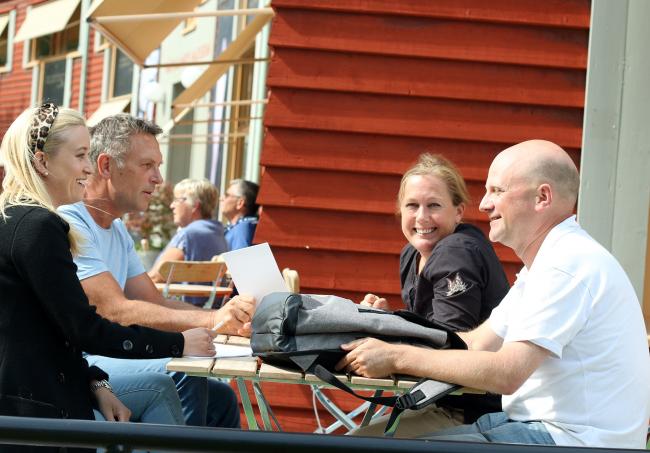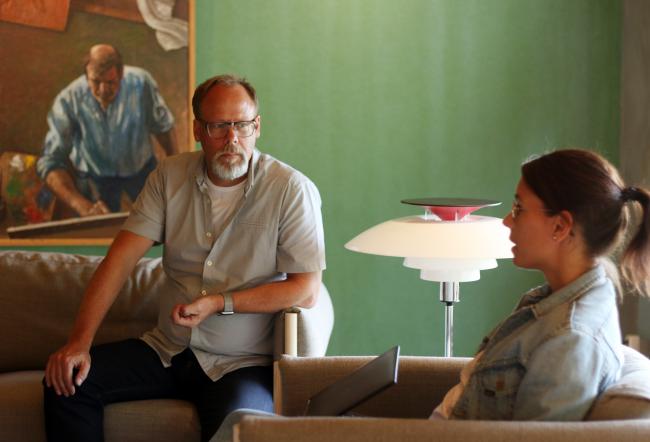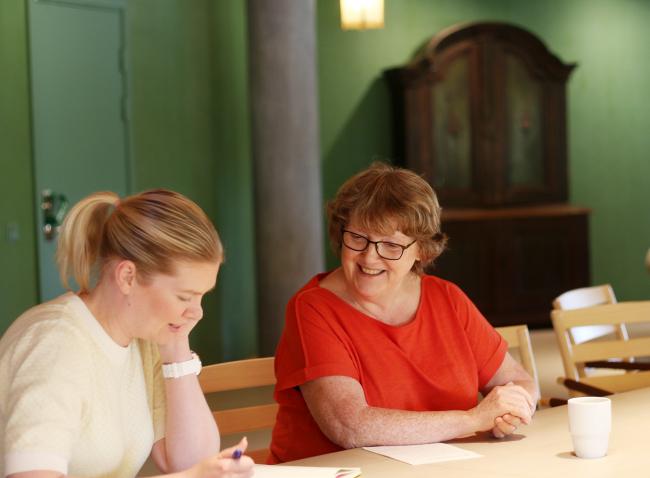University teaching in 2030 – how will it be done?
2019-08-30Karlstad Business School got off to a flying start after the summer by focusing on educational issues at the joint one-day kick-off conference in mid-August. The event was part of efforts towards obtaining AACSB accreditation, but also an opportunity to share experiences of teaching and assessing.
The conference focused on teaching in relation to how students can be motivated to be more active learners as well as more active in combining knowledge and its application in cooperation with professional people. As recently as the staff meeting in May, teaching staff, researchers and administrative officers discussed the issue of teaching in the future. How do we teach in 2030? This discussion was used as a basis for further development efforts.
”Some of the needs and factors identified in May concern new forms of instruction, the teacher as mentor/coach, life-long learning, digitalised course components, sustainable development and further collaboration with external parties, increased internationalisation through global courses, and shared class-rooms – and much more”, says Marie-Therese Christiansson, deputy head of Karlstad University Business School.
Cooperation for better teaching
Several teaching staff presented examples of external cooperation in teaching. Tommy Bergqvist, programme coordinator of the Real Estate Management programme, reported that students estimate the value of properties together with real estate agents as mentors in a programme course. Anders Hultqvist, programme coordinator of the Master programme in Tax Law, mentioned the roleplay students do at the administrative court in Karlstad with a judge presiding, and Henrik Bergman and Johan Netz, programme coordinators of the Master programme in Project Management, give students the responsibility to arrange lectures given by professionals who give their perspectives on project management. In addition, members of staff in information systems gave an account of how group supervision in the thesis project period can be effective for students as well as teachers.
”We have chosen to offer the course on perspectives on project management last in the programme since students then have the opportunity to apply all they have learnt, and besides, it provides a positive programme conclusion. Many of the guest lecturers are Business School and Karlstad University alumni. We also notice that the course boosts students’ self-confidence in a good way – ”I can go out and do this without problem” is the feeling they leave us with,” says Henrik Bergman.
Measuring learning outcomes
The conference was also part of the Assurance of Learning process, that is, ensuring that students meet the knowledge requirements.
”We have carried out a second study in the spring of our common learning outcomes for business school courses, and note that quality is constant in many areas and measures taken work. Our efforts relating to student 2030 and discussions with our external partners also indicate needs to follow up on other areas and skills in our programmes, for example, digitalisation and innovation skills. Learning and teaching will recur at our kick-offs in the future and there are many more good examples to highlight. There is a strong commitment here to share and learn from others”, says Marie-Therese Christiansson.






